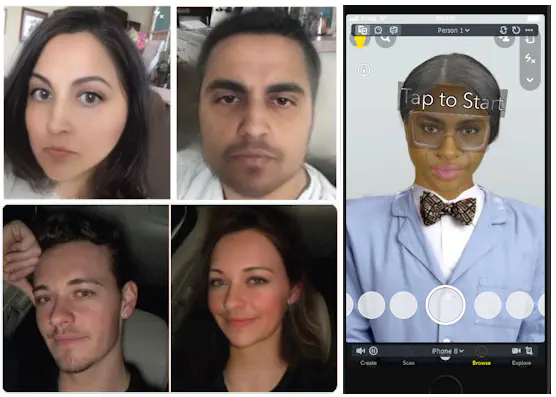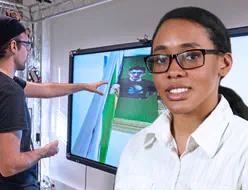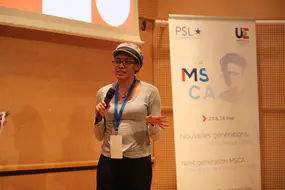AR Face Filters and societal biases

Abstract
This project aims to explore Augmented Reality (AR) user identification with AR virtual avatars from a human-centered perspective.
Identification is a psychological phenomenon where the user merges with the avatar to form a new identity. Unlike typical AR research that focuses on system mechanics and immersion, this project examines the unique psychological experiences of AR identification. In AR, user and avatar interactions occur simultaneously in the real and virtual worlds. Unlike fully immersive VR, where the avatar replaces the user in a virtual space, AR places virtual elements in the user’s real environment. The user and avatar share the same space, and the user is asked to identify with the avatar while remaining aware of their own body.
This project investigates AR identification and dual presence in systems that augment or replace users, and how this affects users’ attitudes and behaviors. Previous research has shown that identification with VR and video game avatars can improve cognitive abilities, change self-perceptions, and reduce societal biases. Given that AR identification involves simultaneous awareness of both the user and the avatar, these effects may manifest differently.
Therefore, this project aims to enhance our understanding of the psychological impacts of AR identification. By examining how AR identification influences users, we can not only improve AR technology but also promote positive societal changes.
People involved
Pictures
News
- Marie Jarrell parmi les finalistes de la compétition MSCA #FallingWallLabs
- Marie Jarrell, chercheuse en psychologie et en science informatique en réalité augmentée
- Une chercheuse américaine accueillie dans le cadre du programme Bienvenüe
Funding

This project has received funding from the European Union’s Horizon 2020 research and programme under the Marie Skłodowska-Curie grant agreement No 899546.






